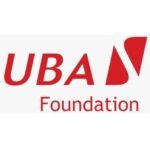WACT Empowers Students with Skills to Combat Period Poverty

At The Event
The West Africa Container Terminal (WACT) has taken a significant step to address period poverty and menstrual stigma by training 150 students from Government Secondary School, Onne, Rivers State, on how to produce eco-friendly reusable sanitary pads. This initiative, done in collaboration with Dofy Global, aims to ensure menstrual dignity for girls while equipping them with valuable skills.
Breaking Menstrual Stigma and Supporting Education
Launched in late 2023 as part of the Menstrual Justice Programme, WACT’s initiative focuses on enlightening students about menstruation to tackle the stigma, shame, and taboos often associated with it. Many female students miss school due to the lack of access to sanitary products, with some resorting to desperate measures to manage their periods.
WACT Community Relations Manager, Justin Okwuofu, noted, “The high cost of conventional disposable pads, ranging from $1.3 to $1.9 per pack, means that many girls cannot afford them. This training empowers students to produce their own reusable pads, breaking the cycle of period poverty and improving school attendance.”
Sustaining the Initiative
To ensure the program’s sustainability, WACT provided the school with four sewing machines and extra materials, enabling the students to continue producing reusable pads after the training. Each trainee also received a pack of reusable pads alongside the ones they made themselves.
“We focused on training students to create these pads to reduce dependence on external support while empowering them with a skill they can use beyond school,” Okwuofu explained.
By teaching students how to make reusable pads, we help them manage their periods with dignity and equip them with practical skills for the future.” – Chinelo Obienyem, WACT Senior People Business Partner.
Impact on the Community
Speaking on the broader significance of the initiative, Chinelo Obienyem, WACT Senior People Business Partner, highlighted that the program aligns with WACT’s focus on health, education, and training. “By teaching students how to make reusable pads, we help them manage their periods with dignity and equip them with practical skills for the future.”
Victor Akubor, CEO of Dofy Global, added that poor menstrual hygiene exacerbates social and economic inequalities. “This training addresses these challenges and ensures that girls can focus on their education and personal development,” he said.
WACT’s efforts to promote menstrual hygiene and reduce period poverty in Onne are an example of how corporate responsibility can uplift communities. As Principal Clara Wali commended, “This program has reduced the number of students seeking support for sanitary pads and equipped them with self-reliance.”
This initiative not only restores dignity to girls but also fosters hope for a generation empowered to break barriers and build a brighter future.










